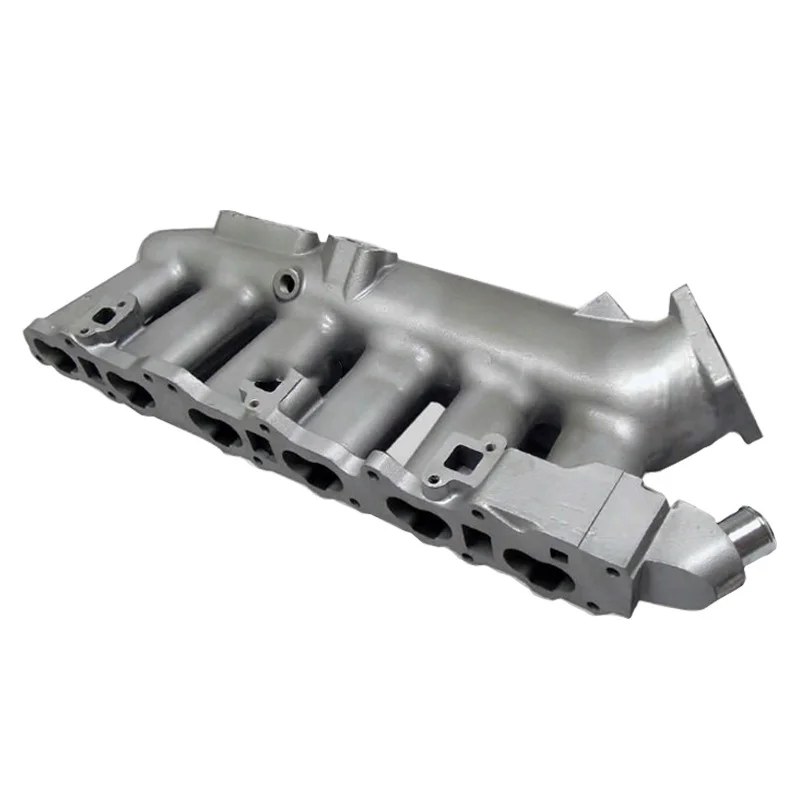- This topic is empty.
-
AuthorPosts
-
2025-01-17 at 10:29 am #6395
In today' s fast-paced manufacturing industry, the demand for precision and efficiency is at an all-time high. Businesses across various sectors are turning to CNC (Computer Numerical Control) machining and aluminium casting to produce high-quality components with unparalleled accuracy. In this blog post, Vibo will share the process, benefits and applications of customization services for CNC aluminium casting parts.
Why Choose Customization for CNC Aluminium Casting Parts?
Customization plays a vital role in modern manufacturing. It allows businesses to adapt to specific requirements, whether it' s creating a unique product design or meeting stringent industry standards. Aluminium casting combined with CNC machining offers an ideal platform for customization due to the material' s versatility and the precision of CNC technology.
Aluminium is lightweight, corrosion-resistant, and highly durable, making it suitable for various applications in industries such as automotive, aerospace, electronics, and medical equipment. When paired with CNC machining, manufacturers can achieve intricate designs and tight tolerances, which are often required in advanced engineering projects. Customization enhances these capabilities, providing businesses with tailored solutions that meet their exact specifications.

Process of Customizing CNC Aluminium Casting Parts
The customization service for CNC aluminium casting parts involves several well-defined steps:
1. Requirement Analysis
The process begins with understanding the client' s requirements. Manufacturers collaborate with clients to gather detailed information about the product' s purpose, design, dimensions, tolerances, and performance criteria.
2. Design and Prototyping
Using advanced CAD (Computer-Aided Design) software, engineers create a digital model of the part. This model serves as a blueprint for the casting and CNC machining processes. Prototyping is often carried out to validate the design and ensure it meets the client' s expectations before moving to full-scale production.
3. Aluminium Casting
Once the design is approved, the aluminium casting process begins. Popular methods include sand casting, die casting, and investment casting, each chosen based on the part' s complexity, size, and production volume. High-quality aluminium alloys are used to ensure strength and durability.
4. CNC Machining
After casting, the raw aluminium part undergoes CNC machining to achieve the desired precision and finish. CNC machines use computer-controlled tools to cut, mill, drill, or grind the part into its final shape, adhering to the exact specifications provided by the client.
5. Quality Assurance
Rigorous quality checks are conducted to ensure the finished parts meet the required standards. Techniques like coordinate measuring machine (CMM) inspections and X-ray testing are often employed to detect any defects or deviations.
6. Surface Finishing
Depending on the application, additional surface treatments such as anodizing, powder coating, or polishing may be applied to enhance the part' s appearance and functionality.
Benefits of CNC Aluminium Casting Parts Customization Services
1. Precision and Accuracy
CNC machining ensures exceptional precision, enabling manufacturers to create parts with tight tolerances. Customization enhances this precision by tailoring the process to meet specific design and performance requirements.
2. Flexibility in Design
Customization allows for intricate designs that may not be possible with standard manufacturing techniques. This is particularly beneficial for industries requiring complex geometries and lightweight components.
3. Cost-Effectiveness
Although customized parts may have a higher initial cost, they often result in long-term savings by reducing material waste, minimizing assembly time, and enhancing product performance.
4. Enhanced Product Performance
Tailored parts are designed to meet specific operational demands, leading to improved functionality and reliability. For example, in the aerospace industry, customized aluminium components contribute to weight reduction and fuel efficiency.
5. Faster Time-to-Market
With advanced CAD software and CNC machines, the lead time for producing customized parts is significantly reduced. This enables businesses to bring their products to market more quickly.
Applications of Customized CNC Aluminium Casting Parts
– Automotive: Engine components, transmission housings, and structural parts.
– Aerospace: Lightweight frames, brackets, and heat exchangers.
– Electronics: Enclosures, heat sinks, and connectors.
– Medical Devices: Precision surgical instruments and diagnostic equipment.
– Industrial Machinery: Gears, pulleys, and custom fittings.
Choosing the Right Partner for Customization Services
– Expertise: Look for a provider with experience in CNC machining and aluminium casting.
– Technology: Ensure they use state-of-the-art equipment and software.
– Quality Standards: Check for certifications such as ISO 9001 to guarantee consistent quality.
– Customer Support: A reliable partner should offer excellent communication and support throughout the project.
Conclusion
The customization service for CNC aluminium casting parts is transforming the manufacturing landscape by enabling businesses to create bespoke solutions with unmatched precision and efficiency. Whether you' re in the automotive, aerospace, or electronics sector, investing in customized parts can help you stay ahead of the competition and meet the ever-evolving demands of your industry. By partnering with a trusted manufacturer, you can unlock the full potential of this innovative service and drive your projects to success.
-
AuthorPosts
- You must be logged in to reply to this topic.

